Introduction
How Long Can Rabbits Go Without Water: Rabbits are adorable and popular small mammals that are often kept as pets or observed in the wild. Just like any other living creature, they require various essentials to survive, and one of the most crucial elements for their well-being is water. In this article, we will explore the question: How long can rabbits go without water? Understanding the importance of water for rabbits and their limitations in surviving without it is essential for responsible pet ownership and for those who study these fascinating creatures in their natural habitats.
Water is essential for the survival of all living beings, including rabbits. It plays a crucial role in maintaining their bodily functions and overall health. Rabbits need water for various reasons, such as regulating body temperature, aiding digestion, transporting nutrients, and eliminating waste products. Without a consistent supply of water, rabbits can suffer from dehydration, which can lead to severe health complications and even death.
Unlike some desert-dwelling animals that have adapted to survive extended periods without water, rabbits are not well-equipped for dehydration tolerance. While their bodies can adjust to conserve water to some extent, they still heavily rely on a regular intake of water to stay hydrated and healthy.
In general, rabbits eat should not go without water for more than 24 hours. Dehydration can set in relatively quickly, leading to a range of health issues. The exact duration a rabbit can survive without water depends on various factors, including its age, overall health, ambient temperature, and activity level. Younger rabbits, elderly rabbits, and those with preexisting health conditions are more susceptible to the adverse effects of dehydration.
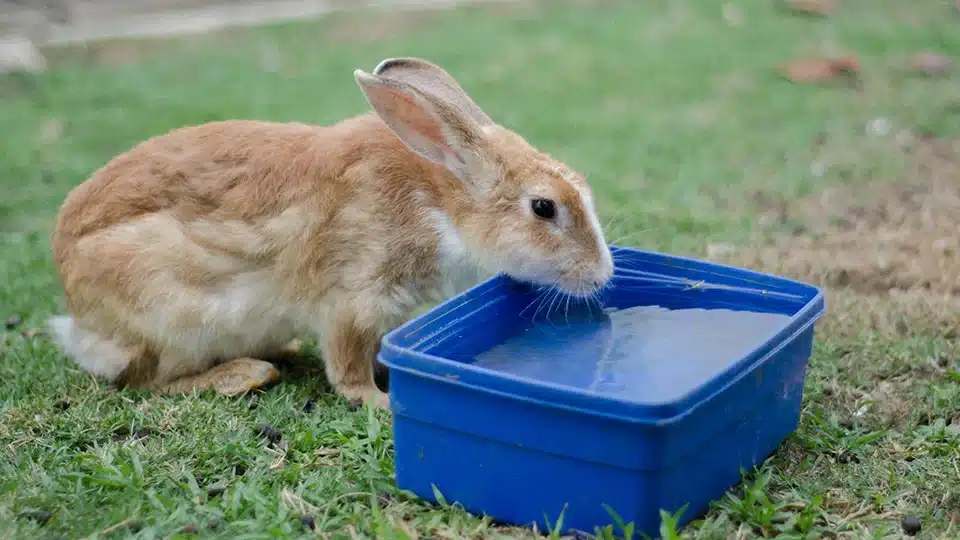
How often do rabbits need water?
Your rabbits can miss a feeding sometimes, but should have a good fresh supply of water every day. In fact, if you don’t give your rabbits drinking water for even one day, they could die. Rabbits often consume two to three times more water than feed. This may change if you give your rabbits a new type of feed.
Water Consumption Patterns
Rabbits, like all animals, have unique water consumption patterns influenced by factors such as their size, age, diet, activity level, and environmental conditions. On average, rabbits tend to drink around 50 to 150 milliliters of water per kilogram of their body weight daily. This range accounts for variations among individual rabbits.
Factors Influencing Water Intake
Diet: The type of diet your rabbit follows can significantly impact their water needs. A diet rich in fresh vegetables and leafy greens naturally contains more moisture, reducing the need for additional water intake. Conversely, a diet predominantly composed of dry pellets may require the rabbit to drink more water.
Environmental Conditions: Temperature and humidity play a crucial role in a rabbit’s water intake. In hotter weather, rabbits are more likely to drink more water to regulate their body temperature and prevent dehydration.
Health and Activity: Sick or nursing rabbits might have higher water requirements, as their bodies are working harder. Active rabbits, such as those allowed to exercise and explore, may also need more water due to increased metabolic activity.
Providing Fresh Water
To maintain your rabbit’s health, it’s imperative to provide access to clean and fresh water at all times. Water should be changed daily to prevent contamination and ensure that your rabbit doesn’t hesitate to drink due to impurities. Invest in sturdy, non-tip water containers to avoid spills and keep the enclosure dry.
Monitoring Hydration
Observing your rabbit’s behavior can offer valuable insights into their hydration status. Signs of dehydration include dry and sticky gums, decreased skin elasticity, lethargy, and reduced appetite. If you notice any of these signs, consult a veterinarian promptly.
How many days can a rabbit survive without food and water?
After 12 hours: Your rabbit’s digestion will slow down, which puts them at risk for GI stasis. After a day: Without food or water, your rabbit will likely become dehydrated, eventually leading to kidney malfunction. After a couple of days: Organ malfunction will become fatal.
Survival Without Food
Rabbits are herbivores, and their digestive systems are adapted to a diet high in fiber and low in fat. Their cecum, a specialized part of the digestive tract, plays a pivotal role in breaking down fibrous plant materials. Without a consistent intake of food, a rabbit’s digestive process can be disrupted, leading to severe health issues.
On average, a rabbit can survive without food for about 3 to 5 days. However, it’s important to note that this timeline can vary based on factors such as the rabbit’s age, overall health, and body condition. Young rabbits and those with pre-existing health conditions may have a shorter window of survival without food.
Survival Without Water
Water is essential for almost all bodily functions, and rabbits are no exception. Proper hydration is crucial for digestion, temperature regulation, circulation, and overall organ function. Unlike some other animals, rabbits do not have a high tolerance for dehydration due to their unique physiology.
A rabbit can survive without water for a much shorter period compared to food. On average, they can survive for only 1 to 2 days without water. Dehydration can lead to serious health complications, such as reduced blood flow, electrolyte imbalances, and urinary issues. In hot weather or stressful situations, a rabbit’s water needs may increase, making access to water even more critical.
The Combined Impact
When a rabbit goes without both food and water, the consequences can escalate quickly. Dehydration exacerbates the effects of lack of food, leading to weakened organ function and potential organ failure. The rabbit’s digestive system can become stagnant, increasing the risk of gut stasis—a severe condition where the digestive system slows down or stops entirely.
Responsible Ownership
To ensure the well-being of your rabbit, it’s imperative to provide a consistent supply of fresh food and water. Rabbits should have access to hay, fresh vegetables, and high-quality pellets that meet their nutritional needs. Fresh water should always be available, and water containers should be kept clean and free from contamination.
In situations where you might need to be away from home for an extended period, arranging proper care for your rabbit is essential. Enlist the help of a trusted friend, family member, or professional pet sitter to ensure that your rabbit’s dietary and hydration needs are met in your absence.
How do you know if your rabbit is dehydrated?
Your rabbit may be dehydrated if you see any of these problems: thick sticky saliva, crusty eyes, poor appetite, small amounts of dark colored urine, or hard dry fecal pellets. In order to correct dehydration, extra water must be given to your rabbit.
Common Signs of Dehydration
Dry Mouth and Gums: One of the most noticeable signs of dehydration in rabbits is dry and sticky gums. Normally, a well-hydrated rabbit will have moist and pink gums. If you notice that your rabbit’s gums appear dry and pale, dehydration might be a concern.
Reduced Skin Elasticity: Gently lift the skin on the back of your rabbit’s neck or between their shoulder blades and release it. In a hydrated rabbit, the skin should quickly return to its normal position. Dehydrated rabbits may exhibit slower skin recoil, indicating a lack of moisture in their system.
Lethargy and Weakness: Dehydration can lead to lethargy and decreased energy levels. If your rabbit seems less active than usual, reluctant to move, or weaker than usual, it could be a sign that they’re dehydrated.
Reduced Appetite: Rabbits that are dehydrated may lose interest in food, which can further exacerbate the issue. A sudden decrease in appetite, especially when accompanied by other signs, should raise concerns.
Small or Absent Urine Output: Check your rabbit’s litter box for changes in urine output. Reduced or concentrated urine could indicate dehydration.
Sunken Eyes: Dehydration may cause a rabbit’s eyes to appear sunken or dull. Healthy rabbits typically have bright, alert eyes.
Taking Action
If you suspect that your rabbit is dehydrated, it’s crucial to take swift action to address the issue:
Provide Fresh Water: Ensure that your rabbit has access to clean and fresh water at all times. A water bottle or bowl that is free from contaminants is essential.
Offer Hydrating Foods: Incorporate water-rich foods into your rabbit’s diet. Vegetables with high water content, such as cucumber, lettuce, and celery, can help increase their fluid intake.
Monitor Water Intake: Keep track of how much water your rabbit is drinking on a daily basis. Any sudden decrease in water consumption could be a red flag.
Contact a Veterinarian: If you notice persistent signs of dehydration or if your rabbit’s condition worsens, consult a veterinarian with experience in treating rabbits. Dehydration can lead to serious health complications, so professional guidance is essential.
Why rabbits don t drink water?
Rabbit’s may refuse to drink because they are too stressed, or because the water just doesn’t taste good. It’s not common for rabbits to become severely dehydrated if they have water available, but it is a possibility.
Diet Composition
Rabbits have a unique digestive system that relies heavily on fiber-rich foods like hay and leafy greens. These foods naturally contain moisture, which contributes to their overall hydration. If a rabbit’s diet is predominantly composed of water-rich foods, they might consume less water from their water source. This is more common when rabbits are offered a variety of fresh vegetables and wet greens, as they derive a significant portion of their moisture from these sources.
Water Source Preference
Rabbits can be particular about their water source. Some rabbits may show a preference for drinking water from a bowl rather than a water bottle, or vice versa. Providing both options and observing which one your rabbit prefers can encourage them to drink more water.
Stress and Environment
Rabbits are sensitive creatures that can be affected by changes in their environment or stressful situations. New surroundings, loud noises, the presence of predators (even if they’re not physically present), or recent changes in their living space can cause stress and potentially lead to reduced water intake. Ensuring a calm and comfortable environment can help mitigate this issue.
Illness or Pain
If a rabbit is feeling unwell or in pain, they might avoid drinking water. Dental problems, gastrointestinal issues, urinary tract problems, or other illnesses can make drinking water uncomfortable. If you notice a sudden change in your rabbit’s behavior or appetite, it’s essential to consult a veterinarian to rule out any underlying health issues.
Dental Issues
Rabbits’ teeth are constantly growing, and dental problems are common. Overgrown teeth or dental malocclusions can cause pain while chewing and swallowing, leading to reduced water intake. Regular dental check-ups and providing appropriate chew toys can help prevent dental issues.
Can a rabbit go 12 hours without water?
A rabbit cannot go longer than 24 hours without drinking. If the weather is particularly hot, this period is even shorter. It cannot be stressed enough how important water is for your pet. Your pet will die without it.
Natural Adaptations
Rabbits have evolved in ways that help them manage periods of reduced water intake. Their digestive systems are designed to extract maximum moisture from their food, especially from fibrous sources like hay and fresh vegetables. This adaptation allows rabbits to absorb water content from their diet, aiding in hydration even when water availability is limited.
Factors Affecting Water Tolerance
The ability of a rabbit to go without water for 12 hours can vary depending on several factors:
Diet: A rabbit’s diet plays a critical role in their hydration. A diet rich in moisture-heavy foods, like leafy greens and vegetables, can somewhat compensate for a temporary lack of water. Conversely, a diet heavily reliant on dry pellets might make it more challenging for a rabbit to manage without water.
Weather and Environment: Hot and dry conditions can lead to quicker dehydration in rabbits. They lose moisture through panting and can become dehydrated more rapidly, making access to water crucial.
Age and Health: Young rabbits, elderly rabbits, or those with pre-existing health conditions might be more vulnerable to the effects of dehydration and might not tolerate going without water for as long as healthy adults.
Potential Risks of Dehydration
Dehydration can have serious consequences for rabbits. As water is essential for digestion, temperature regulation, and overall organ function, a lack of water can lead to:
Gastrointestinal Issues: Dehydration can slow down or disrupt the digestive process, potentially leading to gut stasis, a severe condition where the digestive system stops functioning.
Electrolyte Imbalance: Lack of water can upset the balance of electrolytes in the body, affecting nerve and muscle function.
Urinary Problems: Concentrated urine can increase the risk of urinary tract problems and even the formation of bladder stones.
Lethargy and Discomfort: Dehydrated rabbits often become lethargic, uncomfortable, and show reduced interest in their surroundings and activities.
Do rabbits drink water at night?
Feeding usually begins during the evening hours and continues throughout the night into the early morning. Rabbits do not need to drink water. If food and other necessary resources are found in one place, rabbits will stay in the area.
Rabbit Activity Patterns
Rabbits are crepuscular animals, which means they are most active during the early morning and late afternoon or evening hours. This activity pattern is attributed to their evolutionary adaptations, as these times offer a balance between cooler temperatures and sufficient daylight for foraging.
Water Consumption Patterns
Rabbits, much like humans, have varying water consumption patterns influenced by factors such as diet, environment, health, and individual preferences. While rabbits tend to be more active during the evening hours, this does not necessarily mean they exclusively drink water at night. Instead, they can consume water throughout the day as needed.
Continuous Access to Water
To ensure optimal hydration and overall well-being, rabbits should have access to clean and fresh water at all times, regardless of the hour. Water is essential for digestion, temperature regulation, and various bodily functions. While rabbits may adjust their water consumption based on activity levels, they can still drink water during the night if they feel the need.
Can you leave a rabbit for 24 hours?
Anything longer than 24 hours is too long – and even that is pushing the solitude limits of rabbits. Bunnies, like all other pets, will at times need to be left home on their own.
Temporary Arrangements
If you must leave your rabbit for 24 hours due to unexpected circumstances, consider these steps to ensure their well-being:
Food and Water: Prioritize their access to fresh water and a sufficient amount of hay. Additionally, leave a portion of their usual diet, such as pellets and fresh vegetables, in a secure and accessible location.
Safe Enclosure: Make sure your rabbit is confined to a safe and comfortable enclosure or area of your home. Remove any hazards that might pose a danger to them.
Enrichment: Leave toys, tunnels, and items for them to chew on to keep them mentally engaged.
Temperature Control: Ensure the environment is at a suitable temperature, as rabbits are sensitive to both cold and heat.
Monitoring: If possible, arrange for a trusted friend, family member, or pet sitter to check on your rabbit during your absence. This person can ensure their well-being, refresh their food and water, and provide some companionship.
Preparation for Longer Absences
For longer absences, it’s advisable to have a more comprehensive plan in place:
Pet Sitters: If you’ll be away for an extended period, consider hiring a professional pet sitter experienced in rabbit care. They can provide daily care, interaction, and monitoring to ensure your rabbit’s well-being.
Boarding Facilities: Rabbit-friendly boarding facilities can provide a safe and secure environment for your rabbit in your absence. They are equipped to meet your rabbit’s needs and provide social interaction.
Rabbit-Savvy Friends: Enlist the help of friends or family members who are knowledgeable about rabbit care to look after your rabbit in your absence.
Why hasn t my rabbit eaten in 24 hours?
When a rabbit isn’t eating, it’s usually because they are very ill or stressed. Conditions such as GI stasis, dental disease, or chronic anxiety are likely culprits. If your rabbit ever stops eating for more than 10 hours at a time, they should be brought to a veterinarian for emergency care.
Stress and Environment
Rabbits are sensitive animals, and changes in their environment can lead to stress, which in turn can affect their appetite. Loud noises, new surroundings, changes in routine, or the presence of unfamiliar people or animals can all contribute to a rabbit’s reluctance to eat. Ensure that your rabbit’s living space is calm, comfortable, and free from stressors that might be impacting their appetite.
Illness or Pain
A common reason for a rabbit’s decreased appetite is an underlying illness or pain. Dental problems, gastrointestinal issues, urinary tract problems, or infections can cause discomfort while eating and lead to a decreased desire for food. If your rabbit hasn’t eaten in 24 hours, it’s crucial to observe for other signs of illness, such as lethargy, changes in stool consistency, or grooming abnormalities.
Diet Changes
Rabbits can be sensitive to sudden changes in their diet. Introducing new foods or abruptly altering their diet can lead to digestive upset and a temporary loss of appetite. If you’ve recently changed your rabbit’s diet, consider reverting to their previous diet or gradually introducing new foods.
Heat or Illness
Hot weather can affect a rabbit’s appetite. If the temperature is high, rabbits may be less inclined to eat. Ensuring a cool and well-ventilated environment can encourage them to eat more. On the other hand, illness or fever can also lead to decreased appetite.
Dental Problems
Rabbits’ teeth are constantly growing, and dental issues are common. Overgrown teeth or dental malocclusions can cause pain while chewing and swallowing, leading to a decreased appetite. Regular dental check-ups and providing appropriate chew toys can help prevent and manage dental issues.
Gut Stasis
Gastrointestinal stasis, or “gut stasis,” is a serious condition in which a rabbit’s digestive system slows down or stops entirely. It’s often caused by a combination of factors, including diet, stress, and dehydration. A decreased appetite can be an early sign of gut stasis, and if left untreated, it can be life-threatening.
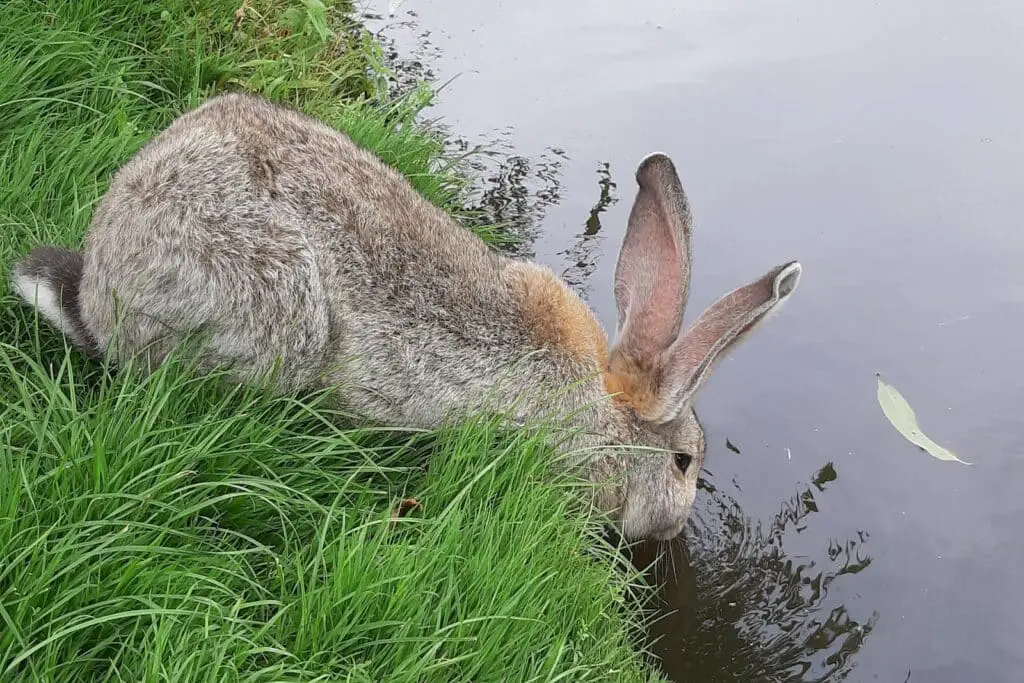
Conclusion
Water is an indispensable element for the survival and well-being of rabbits. These small mammals rely on water for a range of vital bodily functions, from regulating temperature to aiding digestion and eliminating waste. While rabbits, like many animals, have some ability to conserve water in their bodies, they are not well-equipped to withstand prolonged periods without water.
It is generally recommended that rabbits should not go without water for more than 24 hours. Dehydration can set in quickly and lead to various health issues that can be detrimental to their overall health and longevity. Factors such as age, health status, ambient temperature, and activity level influence how long a rabbit can endure without water.
Recognizing the signs of dehydration, such as sunken eyes, lethargy, dry mouth, and reduced appetite, is essential for timely intervention. To ensure the health and happiness of rabbits, responsible pet owners and researchers studying wild rabbits should prioritize providing a consistent supply of clean and fresh water.
In summary, the importance of water in a rabbit’s life cannot be understated, and meeting their hydration needs is a fundamental aspect of caring for these charming creatures, whether as beloved pets or as subjects of scientific inquiry.

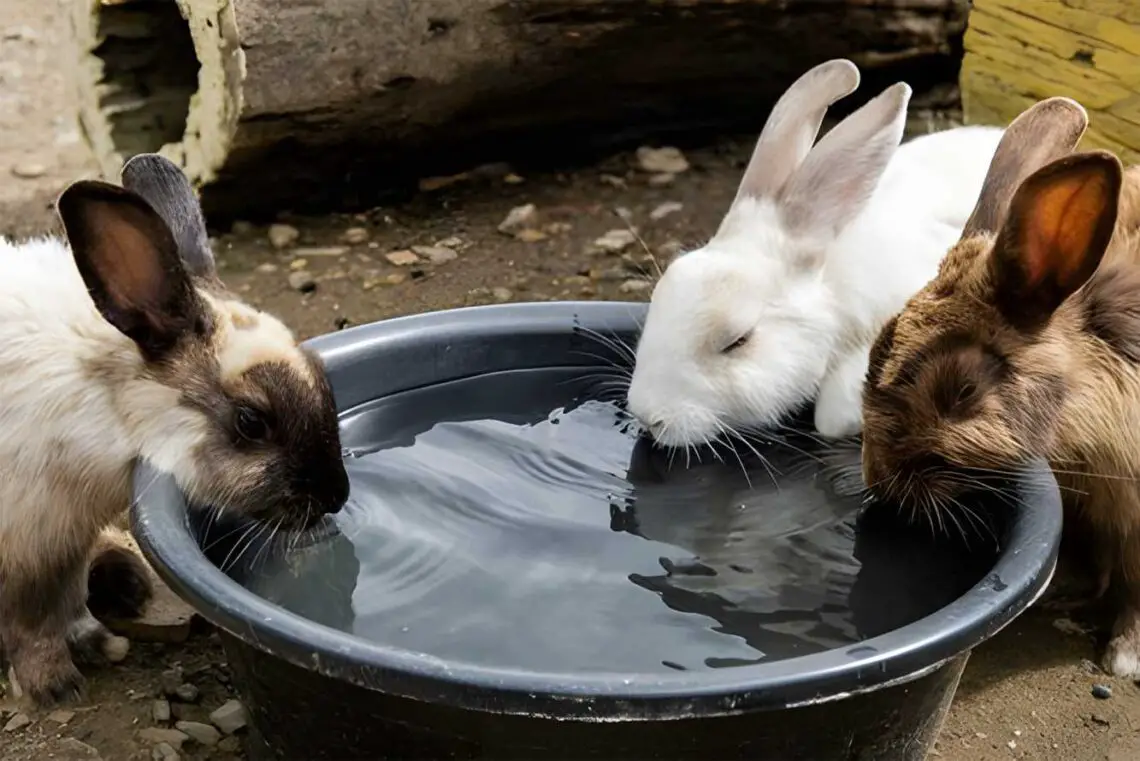
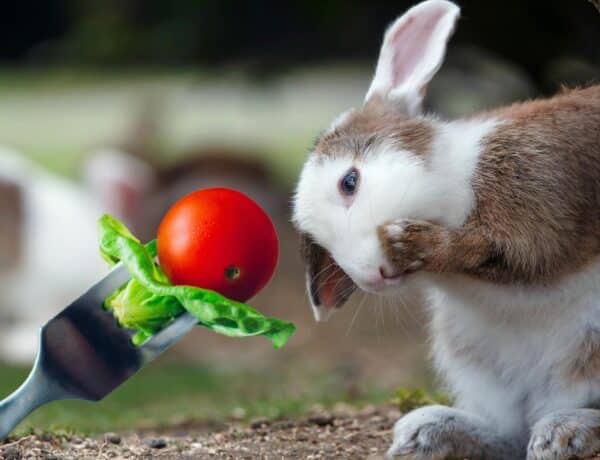
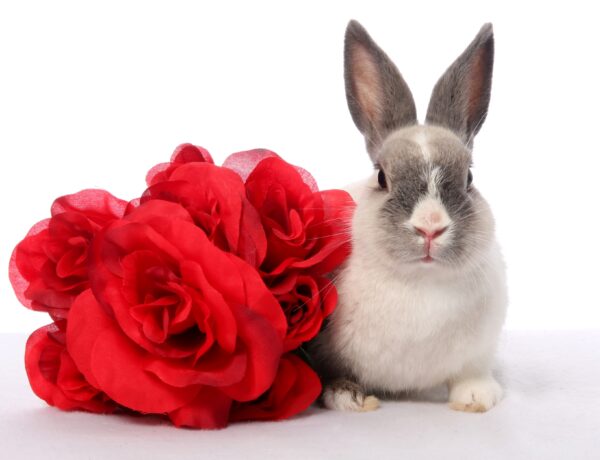
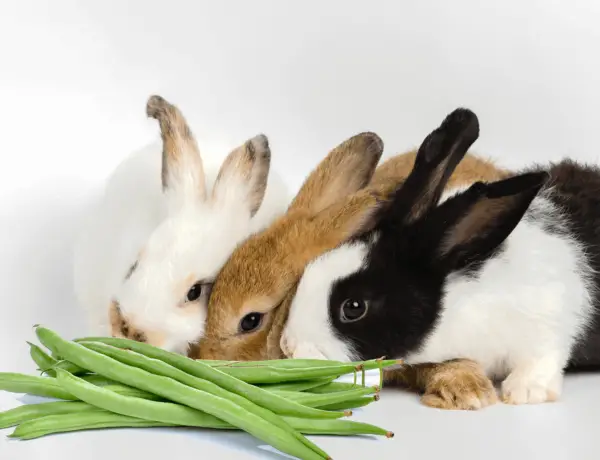
No Comments